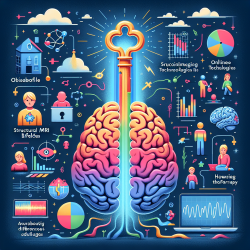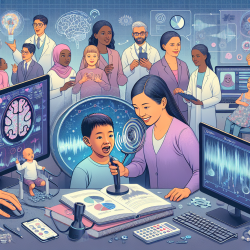The COVID-19 pandemic brought about significant changes in the lives of families, particularly those with children on the autism spectrum disorder (ASD). The lockdowns and the shift to online education presented both challenges and unexpected opportunities. A recent study titled Emotional and Behavioral Problems of Children with ASD: The Lessons That We Learned from the Pandemic offers valuable insights into these changes and how they can be leveraged to improve therapeutic practices.
Here are some key takeaways from the research and how they can be applied to enhance the skills of practitioners working with children with ASD:
- Structured Time with Parents: The study found that children with ASD benefited from more structured time spent with their parents during the lockdown. This structured time led to positive behavioral changes, suggesting that integrating parents more actively into therapeutic practices can yield beneficial outcomes.
- Reduction in Hyperactivity: Interestingly, children with ASD showed lower levels of attention deficit/hyperactivity problems after the lockdown. This points to the potential benefits of a less hectic, more predictable home environment. Practitioners can encourage parents to maintain a calm and structured home setting to help manage hyperactivity.
- Increased Parental Involvement: Parents reported more positive consequences from staying at home, such as having more time for learning together, communicating, and playing. Encouraging parents to be more involved in their children's daily activities and therapy sessions can lead to improved outcomes.
- Online Therapy: The study highlighted the effectiveness of online therapy during the lockdown. This suggests that teletherapy can be a viable option for continuous support, especially when in-person sessions are not feasible. Practitioners should consider incorporating online therapy into their regular practices.
- Balanced Screen Time: While increased screen time was noted as a negative consequence, it also provided opportunities for interactive and engaging online learning. Practitioners can guide parents on balancing screen time with other physical and social activities.
These findings underscore the importance of a holistic approach that involves both parents and practitioners working together to create a supportive and structured environment for children with ASD. The pandemic has taught us valuable lessons about flexibility, adaptability, and the critical role of family involvement in therapeutic interventions.
To read the original research paper, please follow this link: Emotional and Behavioral Problems of Children with ASD: The Lessons That We Learned from the Pandemic.










